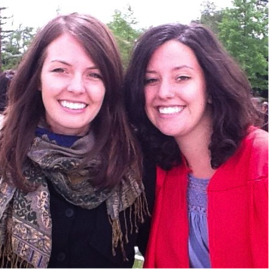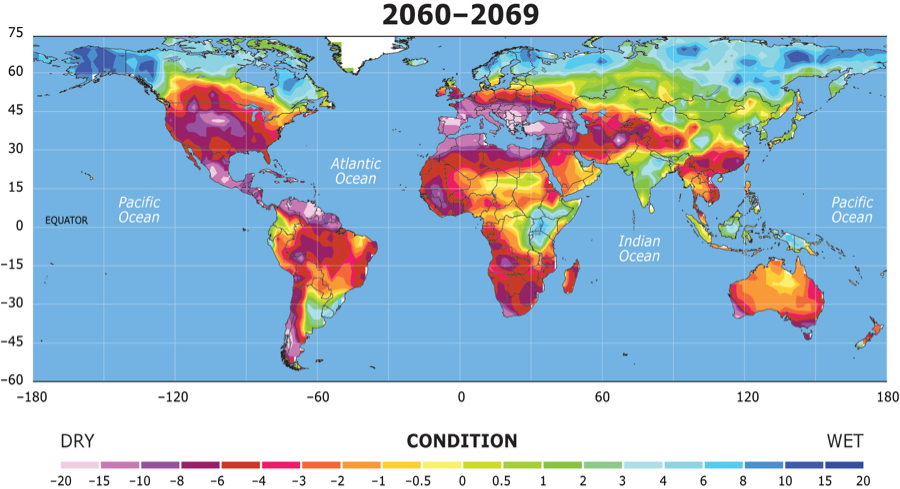1963. I am three years old. My older sister, seven, is a plaintiff in the lawsuit integrating our grade school in south central Tennessee. There are three billion people in the world. One of them is named Chung Chungin. She is six and lives in Seoul, Korea. The atmosphere holds 319 parts per million carbon dioxide.


1973. In spite of what you hear, the 70’s are a super decade.

1983. Al Elison, a 35 year-old hippy with long hair, bursts into our environmental group meeting to announce that scientists have proved it: the greenhouse effect is here, and the planet is getting hotter. None of us have ever heard of this idea. We all think he is a little crazy. Chungin immigrates to Portland, OR, speaking no English, $200 to her name. CO2= 343 ppm.


1993. My babies are in the world! Chungin also has a beautiful little girl.


She (Chungin) escapes the Portland suburbs to study art in NYC. I am a college professor, completing the first edition of my college textbook. The opening chapter focuses on the economics of the just discovered civilizational challenge of global warming. There are 5.5 billion people on the earth, and CO2 ppm is 355.

2003. I am now running a non-profit. The Race to Stop Global Warming is in eight cities! We are training hundreds of climate speakers at weekend training workshops across the country. Chungin and I will spend two years “Focusing the Nation”. Humanity is waking up. Yes We Can. Obama is elected! Waxman-Markey passes!


2013. PPM crosses 400. Population is 7 billion. The dark days of Copenhagen were almost 4 years ago.
Kids all grown up, I now have a Korean family too—sister, brother, nieces and nephews. Since Chungin was six, people in Korea went from living off $5 a day to $100 a day. This is a good thing.



Another five billion people seek to follow.
Many, many, many people are dedicating their lives, building careers, around scaling solutions—to rewiring the world with clean energy, redesigning cities across the earth, reinventing the global food system, changing our politics.
Will it be enough?
2043. I am an old man, 83. Chungin is 86. Our daughters have become our ages now: Emma is 54, Liza 51, Qatanna 57. And by this time in human history, we know the future of the earth.
Here is one.
The heroic effort of millions of people across the world, ramped up in the 2020s, has put us on track to completely phase out fossil fuels, and stabilize the climate: PPM CO2 is 440 and barely rising. Together, we have shepherded both the human race and the remaining species on the planet through a critical bottleneck in human history, creating tens of millions of jobs, helping lift billions of people out of poverty, and building a global economy that is truly sustainable.
Here is another.
2063. The kids are all older women: Emma, Liza, Qatanna, in their 70’s. Our grandkids, should we have them, in their 40’s. And the earth is drying out. PPM headed to 700 by the end of the century, planetary temperatures up 8 degrees F. Here is what the world looks like, as envisioned by US Government scientists way back in the year 2010.

Extreme drought in this image is anything to the left of magenta: brown, dark purple, light purple. Draw a line up from Virginia, past the Great Lakes and in to central Canada. Then down to Oregon. And everything—everything south of that, the entire US, Mexico, into Central America and the heart of the Amazon—all of that is in extreme, permanent drought. A post–peak oil, post water shortage world, mass extinction, tribalistic politics, not the world we want for our children and grandchildren.
Which future will come true?
None of us knows. And yet, as together we cross 400, many of us are very much alive to the first future, where we do rewire the world, and build a sustainable future for all people, and for creation. There is no better work, no better way to spend a life, no time on earth to be as human as we can be, still, today.
=====
Eban Goodstein is Director of the Bard Center for Environmental Policy. He recommends you join the future at Summer Heat.

